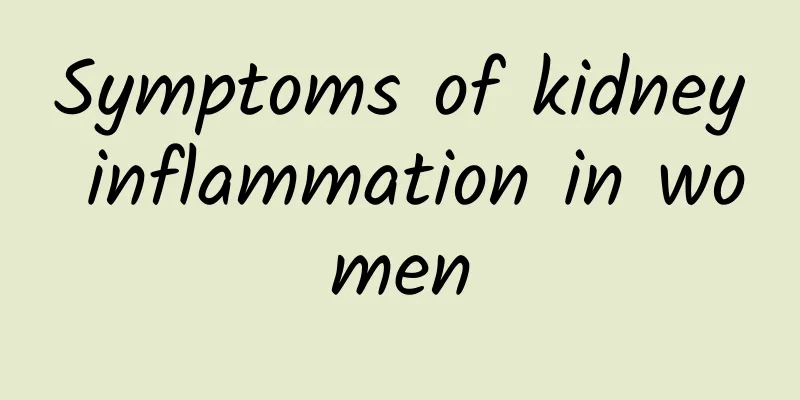What are the methods for preventing and treating diarrhea?

|
When it comes to preventing and treating diarrhea, we must pay attention to the correct methods, because diarrhea has a relatively large impact on our health, especially long-term diarrhea can easily lead to dehydration, so we must correct bad eating habits and prescribe the right medicine, especially for infectious diarrhea, we must pay attention to the use of drugs. 1. Correct bad eating habits Eat enough food. Eat more foods high in crude fiber and develop the habit of drinking more water. Take a small amount of wheat bran orally at regular intervals (25-30 g of dietary fiber per day, not suitable for those with organic intestinal stenosis). The amount of water you drink should reach 3000ml per day. 2. Develop good living habits Maintaining a regular daily routine, actively participating in physical activities, and maintaining an optimistic mental state can also help improve the function of the digestive tract. 3. If you often eat a lot of meat and fish, you may get diarrhea easily if you are not careful. In view of the characteristics of diarrhea, such as increased intestinal motility, increased intestinal mucosal exudation and/or secretion, and intestinal flora imbalance, antidiarrheal drugs are roughly divided into several types, including intestinal motility inhibitors (such as compound phenoxylate and Imodium), astringent antidiarrheal agents (such as tannic acid protein and bismuth subcarbonate), mucosal protectants (such as Smecta), and microecological agents (such as Bifico and Zhengchangsheng). In addition, adsorbents such as activated carbon can absorb toxins and reduce irritation to the intestinal mucosa, and thus also have an antidiarrheal effect. 4. The most important thing in treating diarrhea is to prescribe the right medicine for the disease. Diarrhea can be divided into infectious and non-infectious. Infectious diarrhea is caused by pathogens such as bacteria, viruses, fungi, and parasites, such as bacillary dysentery, bacterial food poisoning, viral enteritis, etc. Non-infectious diarrhea is common in colds, indigestion, gastrointestinal dysfunction, and systemic diseases such as hyperthyroidism, diabetes, and uremia. 5. Antidiarrhea is only a symptomatic treatment, and treatment of the cause is the fundamental treatment. Therefore, while stopping diarrhea and replenishing fluids, do not neglect the treatment of the primary disease. If it is infectious diarrhea, sensitive antibiotics should be used to control the infection; if it is caused by indigestion, you should start with adjusting your diet; if it is caused by gastrointestinal dysfunction, you can choose drugs that regulate autonomic nervous function and sedatives, etc. |
<<: What causes alternating constipation and diarrhea?
>>: What should I do if I have bloating?
Recommend
What should I do if I have a mouth ulcer?
Oral ulcers are cyclical and recurrent, which mak...
Length of the rectum
The rectum is not particularly long. It is locate...
Precautions for disposable intravenous catheters
A disposable intravenous catheter is a relatively...
How to regulate weak spleen and stomach? These 4 points must be achieved!
Many people suffer from weak spleen and stomach i...
Men rub this place after getting up, it has miraculous effects
There are many "men's points" in tr...
Treatment of ringworm
Tinea pedis is a very common skin disease that ma...
The efficacy and effects of Ginseng Guipi Pills and the people it is suitable for
The main ingredient of Ginseng Guipi Pills is wil...
What causes peeling of soles of feet?
There are many reasons for peeling on the soles o...
The difference between Ermiao Pills and Simiao Pills
In traditional Chinese medicine, adding other Chi...
Difference between atopic dermatitis and eczema
Odor dermatitis and eczema are both common skin d...
What causes stomach bloating, nausea and vomiting?
If you have bloating, nausea or frequent vomiting...
How to prevent hand, foot and mouth disease
Hand, foot and mouth disease is a common disease ...
Are the symptoms of myocardial ischemia easy to treat?
Myocardial ischemia is a relatively common diseas...
What is the cause of headache on one side of the body?
At every certain stage, our body will have some a...
What diseases can be detected by routine leucorrhea examination?
When many women have a gynecological examination,...









